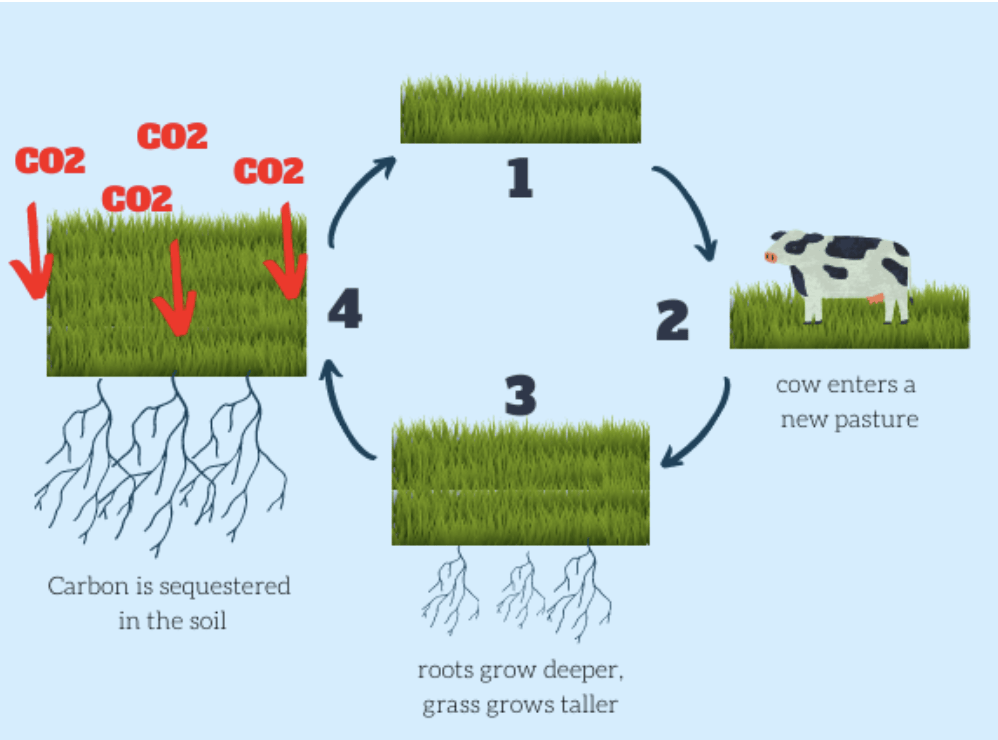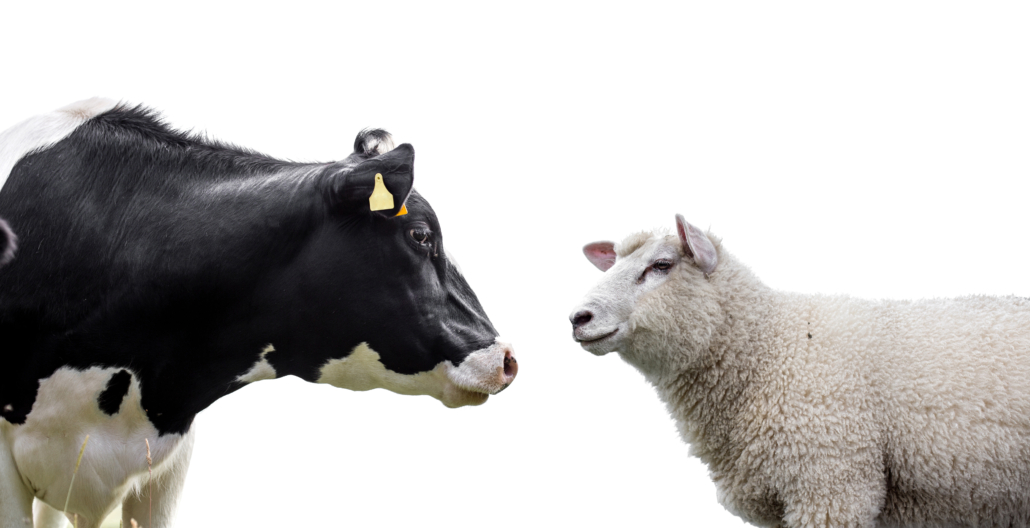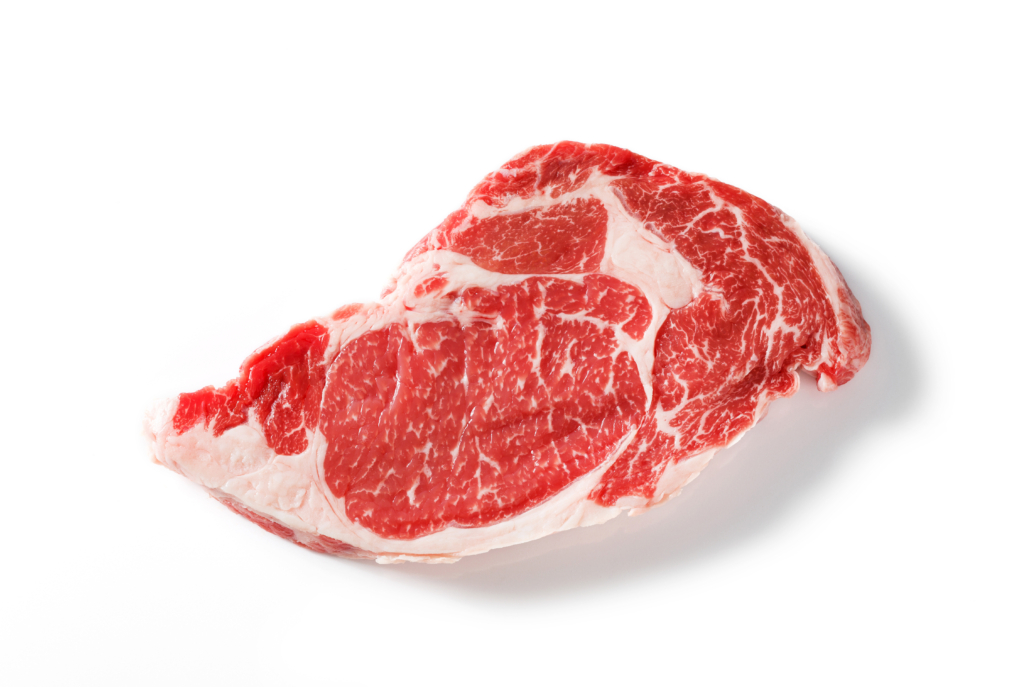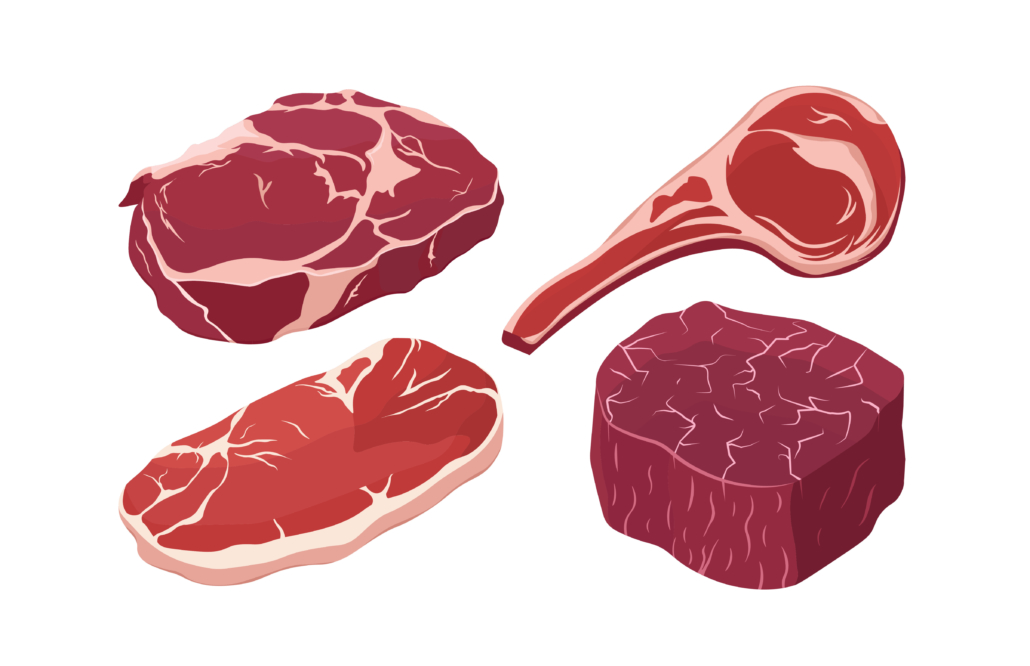We include products in articles we think are useful for our readers. If you buy products or services through links on our website, we may earn a small commission.
The Benefits of Eating Meat for Health and Beyond

Table of Contents
- Benefits of Eating Meat: Fast Facts
- The New Science on Eating Meat
- High-Meat Low-Carb vs. Non-Meat Diets
- Health Benefits Associated with Eating An All Meat Diet
- Benefits of Eating Meat Specific Nutrients
- Benefits of Eating Organ Meats
- Are there Benefits of Eating Meat for the Environment?
- Benefits of Eating Meat: The Takeaway
The health benefits of eating meat are numerous and powerful. Yet for over 70 years the debate about the benefits and drawbacks of meat has been complex and controversial.
Some older observational studies that include processed meats have correlated eating meat with cancer and heart disease.
More recently, we have higher-quality randomized control trials and comprehensive survey studies showing that fresh meat and saturated animal fat is not dangerous while offering new insights into the benefits of eating meat.
At the same time, with the rising popularity of the carnivore diet, we’re seeing the benefits of eating only meat widely shared across social media.
In this article, we’ll follow the latest science to better understand how meat can benefit your health.
Benefits of Eating Meat: Fast Facts
When looking at the health benefits of eating meat there are a number of factors to consider:
- The studies that mainstream dietary guidelines reference for eating less meat are flawed and unreliable
- Modern, high-quality studies find very weak to no correlation between eating meat and negative health outcomes
- There may be a difference in health outcomes between eating processed meat and fresh meat
- Meat in general is the most nutrient-dense food group, rich in complex proteins, healthy fats, and bioavailable micronutrients that you can only get from animal products.
- Organ meats and fatty cuts of meat provide the greatest health benefits
- Substituting fatty meat for lean meat is likely worse for your heart health
- The benefits of eating meat are enhanced when meat replaces low-nutrient foods like inflammatory grains and added sugars
- Meat raised with regenerative agricultural practices can have a negative carbon footprint
The New Science on Eating Meat
If you’ve grown up on the Standard American Diet, you’ve been told that saturated fat from meat is bad, and that eating meat will give you cancer. Should you believe this?
Thanks to better science, these longstanding public health directives have been shown to be unfounded, and even dangerously wrong.
Saturated Animal Fat
Up to date studies accounting for over 1 million combined participants and published in the most respected medical journals are telling a new story: For the average person, saturated fat–the kind that meat has been demonized for–is not significantly associated with heart disease, cancer, stroke, diabetes, and death from heart attack. 1 2 3 4 5
A 2020 review in the Journal of the American College of Cardiology, authored by more than a dozen researchers from the most respected medical schools around the world, concluded that “although intake of processed meat has been associated with increased risk of CHD (coronary heart disease), intake of unprocessed red meat is not, which indicates that the saturated fat content of meat is unlikely to be responsible for this association.” 6
The researchers continue, “Whole-fat dairy, unprocessed meat, and dark chocolate are SFA-rich foods with a complex matrix (of nutrients) that are not associated with increased risk of CVD. The totality of available evidence does not support further limiting the intake of such foods.” 7
In 2019 a broad study looking for possible benefits of reducing meat, researchers concluded, “The certainty of evidence for these risk reductions was low to very low.” 7 Likewise, a 2011 analysis of 25 studies found insufficient evidence to support an association between red meat and colon cancer–the most common cancer attributed to eating meat.8
High-Meat Low-Carb vs. Non-Meat Diets
When looking at the few quality randomized control trials comparing high-meat, low-carb diets to non-meat diets high in red meat, the high meat diets result in dramatically better health outcomes when it comes to cardiovascular health and weight loss. [8] [9] [10]
It is worth noting that the meat in these diets was low fat. Based on evidence that substituting lean meat for animal fat is likely worse for your heart, we believe that a diet with fattier meat would result in greater health benefits.
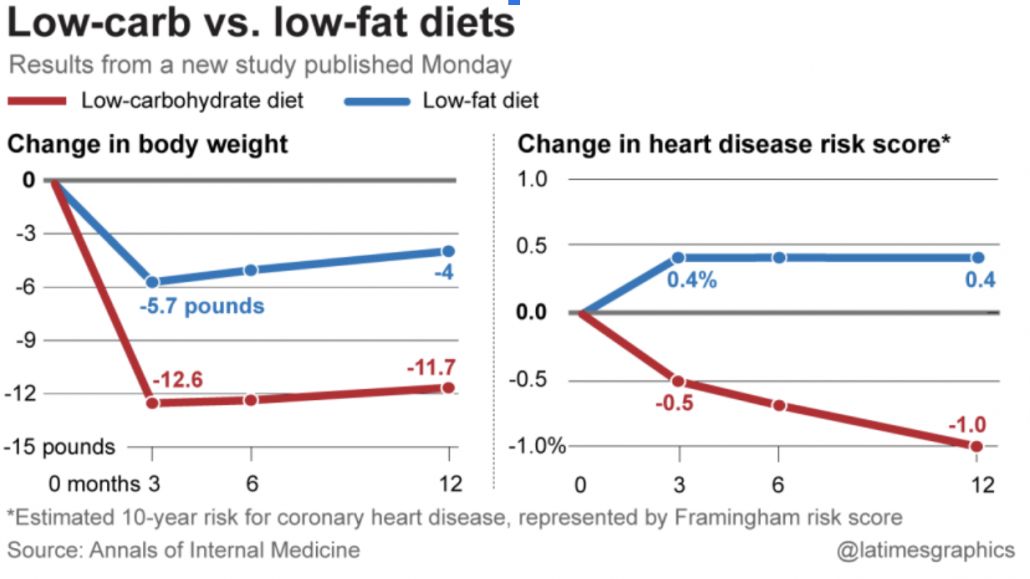
Health Benefits Associated with Eating An All Meat Diet
Perhaps the best data we have on the health benefits of eating meat are the reports of tens of thousands of people across the carnivore community.
Carnivore dieters routinely describe major boosts in energy and mental clarity, improvements in bowel and gastrointestinal function, clearer skin, rapid weight loss, and reversal of diabetic and pre-diabetic conditions. Until recently, you could only hear about these benefits through social media channels.
That was until Harvard University researchers Dr. Belinda Lennerz and Dr. David Ludwig, published a bellwether 2021 study looking at how a carnivore diet affected the health of 2,029 people. 9
At the end of the 6 month trial the researchers concluded, “Contrary to common expectations, adults consuming a carnivore diet experienced few adverse effects and instead reported health benefits and high satisfaction.” The results were overwhelmingly positive:
- 93% improved or resolved obesity and excess weight
- 93% improved hypertension
- 98% improved conditions related to diabetes
- 97% improved gastrointestinal symptoms
- 96% improved psychiatric symptoms
Though the data is self-reported, and therefore less reliable than randomized control trials, the study marks a major step towards an institutional reckoning with the benefits of eating meat.
Many of the benefits of eating only meat are likely due in part to what you’re not eating. Namely, added sugars, processed grains, plant toxins, and vegetable oils. All of which have been shown to contribute to chronic inflammation, heart disease, cancer, diabetes, and numerous other diseases and disorders. 10 11 12 13
Yet, the most powerful benefits of eating meat are likely due to the fact that meat, especially red meat and organ meats, are among the most nutrient-dense foods on earth.
Benefits of Eating Meat Specific Nutrients
The benefits of eating meat are clearly revealed when looking at the roles of the various nutrients that are most prevalent and/or only found in meat. Here’s a quick rundown.
- Fertility boosting
- Energy production
- Weight loss
- Anti-aging
- Antioxidant effects
- Gene expression
- Mood enhancement and stabilization
- Protects cognitive ability
- Stimulated stem cell production
- Immune function
- Increases production of human growth hormone
Let’s take a look at these specific nutrients and how they contribute to the benefits of eating meat.
Stearic Acid
One of the most common saturated fatty acids found in meat. stearic acid is associated with improved body fat, improved mitochondrial function, and weight loss. [5 It has been shown to, slightly lower or have a neutral effect on LDL (bad) cholesterol. [12] And it shows no evidence of raising your risk of heart disease. 12
DHA*
Docosahexaenoic acid (or DHA) is critical for brain function and makes up 20% of the fat in our brains. It allows for neural connectivity and protects our nerves. Only animal-sourced foods provide DHA in sufficient quantities–especially beef, pork, and lamb brains.
Vitamin A
Vitamin A regulates more than 500+ genes and is essential for stem cell differentiation. The ‘preformed’ vitamin A found in meat is far more bioavailability than beta carotene in plants. [1]
B Vitamins
The B Vitamins in meat play many important roles. They convert fuel to energy. Help create red blood cells that carry oxygen to our brains. And they boost cognition and stabilize mood. B12 is found almost exclusively in meat and other animal products. [2]
Vitamin B12*
Recent studies have found that up to 86% of vegan children, 90% of vegan elderly, and 62% of pregnant vegan women are B12 deficient. [20] B12 deficiency can result in dementia and Alzheimer’s disease. [21] B12 is also a powerful antidepressant. [22]
Vitamin K2
Vitamin K2 helps regulate calcium in our bones and brains, stimulates stem cell production in our bone marrow, and helps prevent heart disease. K2 deficits have been linked to Alzheimer’s disease. [3]
Choline
Choline plays a key role in numerous processes in your body. It maintains cell structure, produces compounds that facilitate cell messaging, metabolises fat, and removes cholesterol from your liver. Choline deficiency may result in cognitive impairments and problems with concentration and memory. Our bodies make a small amount of choline, but we rely on meat for most of it. [4]
Heme Iron*
Only found in red meat, heme iron is essential to numerous physiological functions. Iron is essential to the formation of red blood cells, energy metabolism, immune function, and cognitive ability. Without enough iron you will get anemia [23] [24] [25] [26]
Copper
Copper is critical for creating energy, blood vessel maintenance, and the creation of connective tissue. It is also a critical factor in immune function, nervous system health, gene activation, and brain development, and hormone metabolism, and fertility. [15]
Zinc
The zinc found in meat is 400% more bioavailable than zinc found in grains. [15] Zinc supports the immune system while enabling the body to synthesize proteins and DNA. It contributes to wound healing, factors in childhood growth and development and has antioxidant properties.
Zinc deficiency affects motor development and cognitive development in children. [17]
Carnosine*
A promising anti-aging compound, Carnosine is found exclusively in meat. Carnosine is concentrated in areas of the body with high energy demands including the heart, brain, and muscles where it protects these parts from wear and tear. [2] [3] It also prevents glycation–the damaging process of glucose molecules attaching to cells and DNA. [4] It’s also a potent a antioxidant that protects against damage and shortening of telomeres. [5]
Carnitine*
Found almost exclusively in meat, carnitine plays a vital role in improving male fertility. [6] It also reduces anemia, especially when co-occurring with kidney dysfunction. [7] Exciting studies suggest that carnitine may play a major role in mitochondrial function and insulin sensitivity for people with type 2 diabetes. [8] While in heart attack patients, carnitine can prevent ischemia in cardiac muscle. [9]
Creatine*
You’ve probably heard of creatine as a popular supplement with athletes and weightlifters, and it’s another compound only found in meat. Studies have shown that when vegetarians add creatine supplements to their diets they show improved cognitive function. [10] Creatine has also been shown to improve athletic performance in both vegetarians and omnivores. [11]
Interestingly, Alzheimer’s patients show lower creatine levels. [12] When given to patients with heart failure, creatine has been shown to improve cardiovascular performance. For people with type 2 diabetes, supplementing with creatine combined with exercise improves glycemic control. [13]
Taurine
Taurine is another powerful antioxidant. It reduces glycation, inflammation, and oxidative stress. It may also have antidepressant effects, contributing to the general well-being that many people feel after eating meat.10
Lysine
Lysine is an amino acid found in meat, with especially high concentrations in pork. It can boost the body’s production of the growth hormone hGH, which is crucial for normal female fertility. Low hGH is associated with infertility and conditions like PCOS. Lysine also reduces stress and anxiety, and even schizophrenia. 11
CoQ10
This coenzyme supports numerous critical functions including generating energy in your cells by making adenosine triphosphate (ATP). It’s also has powerful antioxidant properties linking it with the prevention of cancer. [30] In addition, CoQ10 may be a powerful anti-fatigue factor, and it has been shown to increase sperm motility. [31] [32]
Benefits of Eating Organ Meats
Organ meats are among nature’s most beneficial superfoods. They are generally much higher in many key nutrients than muscle meat.
The different highly concentrated nutrients in organ meats means that you can create specific blends to meet your health needs. Think of organ meats as nature’s original multivitamin.
Organ meats also possess ‘like-supports-like’ properties. Each organ you consume provides specific nutrients to the corresponding organs in your body.
If you find organ meats to be hard to source or unpalatable, an organ meat supplement may be a great option.
Health Benefits of Traditional Meat Based Diets
One of the most important researchers on the benefits of eating meat was Dr. Weston A. Price (1870-1948).
As a dentist, Dr. Price traveled to remote parts of the world in a quest to discover the secret to the excellent dental health and absence of disease among the traditional cultures he encountered.
Dr. Price observed the prizing of meat, especially fatty cuts and organ meat among the world’s traditional populations.
He found that traditional diets were all centered around fatty animal products. Compared to modern Western diets a meat-centered diet provided:
- 400% more water-soluble vitamins like C, B vitamins, calcium and other minerals.
- 1000% more fat-soluble vitamins from animal foods like fatty muscle meat, ghee, tallow, lard, fish roe, oysters, organ meats, and eggs
Benefits of Eating Fatty Meat
The emphasis on eating fatty meat that Dr. Price observed among traditional cultures may be a key to getting the overall benefits of eating meat while limiting drawbacks.
Recent research shows that though total saturated fat intake is not related to incidences of heart disease, substituting animal protein for animal fat may increase your risk of heart disease.15
Here again is an example of how mainstream diet recommendations may be dangerously wrong. Substituting saturated fat for lean meat is not the answer, and may actually be harmful to your health.
Furthermore, over more than 100 years, we can see a strong correlation between the reduction in animal fat consumption and recommendations for a low-fat diet with increases in obesity and heart disease.
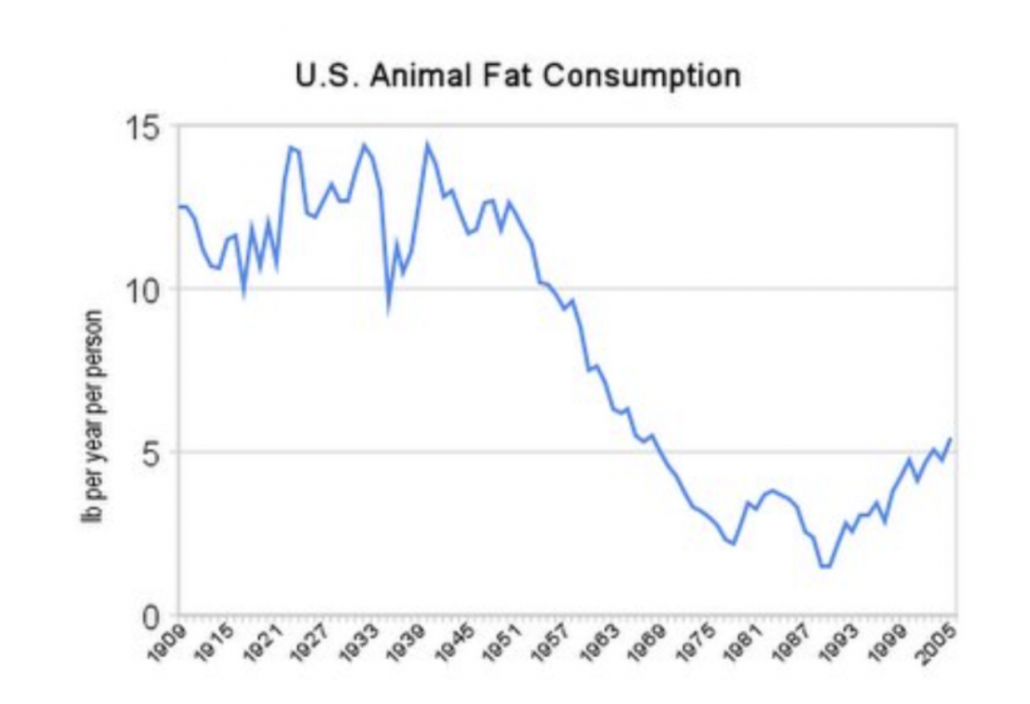
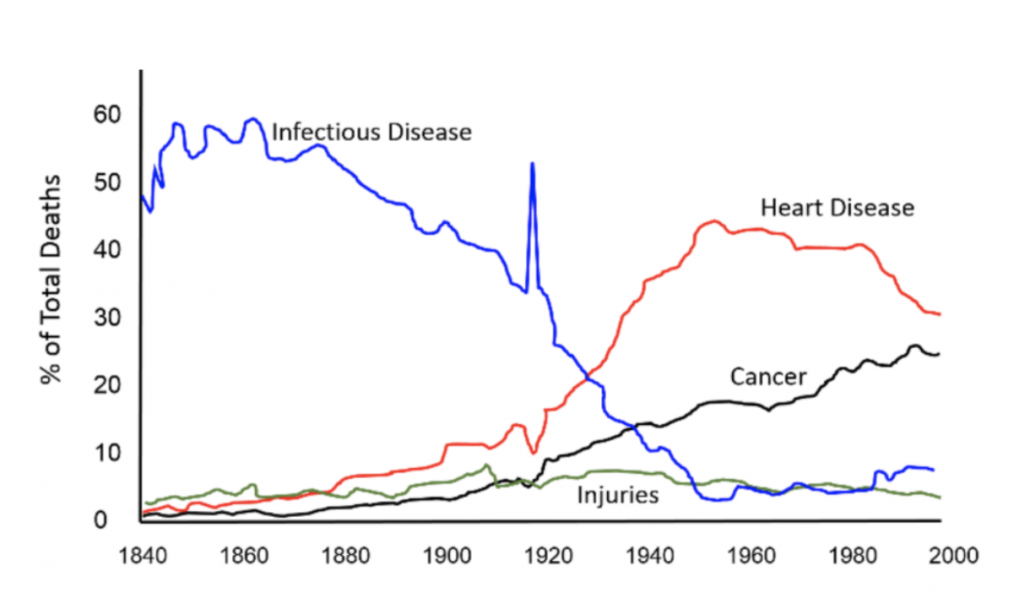
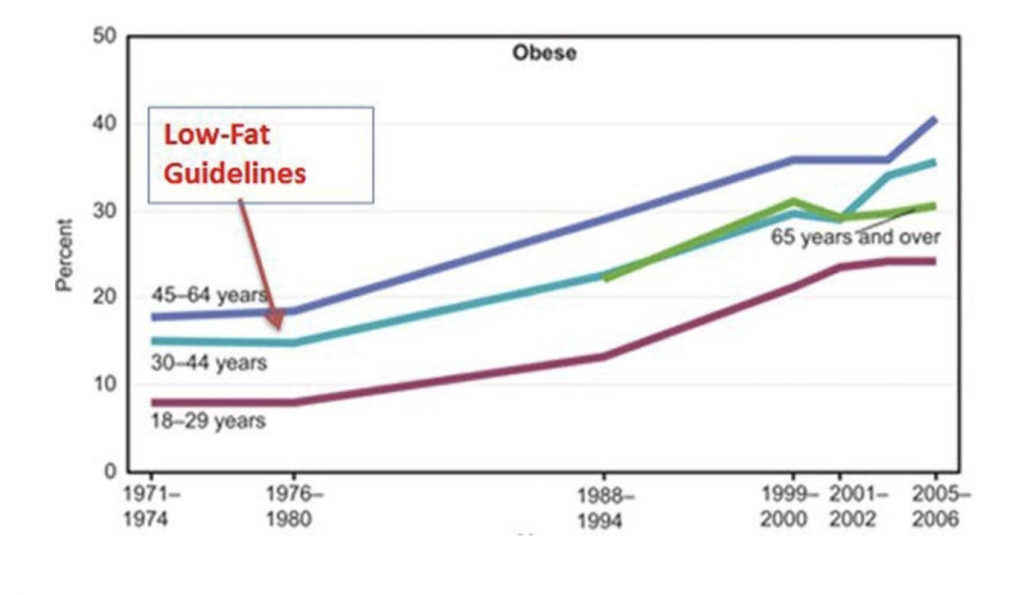
Are there Benefits of Eating Meat for the Environment?
Cows fart methane, and methane is a greenhouse gas. Greenhouse gas emissions from livestock account for around 14.5% of all global emissions. 14 That’s more than the exhaust of all the cars combined. But does this mean that eating meat is worse for the environment than eating plant foods?
This is another area where the ‘science’ is often read to support an agenda. When the data is crunched to support the environmental benefits of a plant-based diet over meat, policymakers are referring to mono-crop industrial agriculture yielding mostly grains and vegetable oils–the inflammatory foods that are likely responsible for our epidemic of obesity, diabetes, heart disease, and cancer. [5] [6] [7]
Researchers from Carnegie Mellon University found that if Americans were to follow the mainstream dietary recommendations for a ‘healthy’ mix of more fruits, vegetables, low-fat dairy, and seafood, energy use would go up by 38%, water use by 10%, and greenhouse gas emissions by 6%. 15
Processed grains and oils are cheap because they’re less energy-intensive. But if we start eating ‘healthy’ fruits, veggies, low-fat dairy, and seafood, the costs to us and our environment skyrocket.
Of course, relying on factory farmed animals isn’t the answer, but it’s also not the only environmentally problematic aspect of our food system.
For instance, on a per calorie basis, lettuce produces 300% more greenhouse gas emissions than conventional bacon.
Food is complicated: fruits and veggies have the largest water and energy footprint per calorie. Meat, dairy, and seafood have the highest greenhouse gas emissions per calorie.
But there is a way out of this quagmire if you have the means to take it. It’s called “regenerative agriculture” or “carbon farming.” This way of raising livestock sequesters carbon while maximizing soil health.
It works by using a method of rotational grazing that recreates the natural ways that bison roamed American prairies for millenia. The animals trample their manure into the earth, feeding the soil and fertilizing the plants that they will later eat. Using livestock to revitalize the soil becomes even more important when considering that at the current pace of soil degradation we only have 60 years left before we may completely deplete the earth’s soil.
Though more expensive than conventional meat, if you truly want eating meat to benefit the environment, regenerative farmed meat is the answer.
Benefits of Eating Meat: The Takeaway
The various benefits of eating meat including increased energy, better mood, weight loss, cognitive protection, and immune support are attributable to two main factors:
- Eliminating low nutrient calories from inflammatory grains and added sugars
- Supplying your body with nutrient-dense foods rich in complex proteins, healthy fats, and bioavailable micronutrients that our bodies need to thrive.
Though eating meat has been a controversial topic for decades, in recent years the dietary wisdom of traditional cultures is converging with modern high quality nutritional science to tell a more accurate story: Meat is likely an extremely beneficial food, especially fatty cuts and organ meats.












